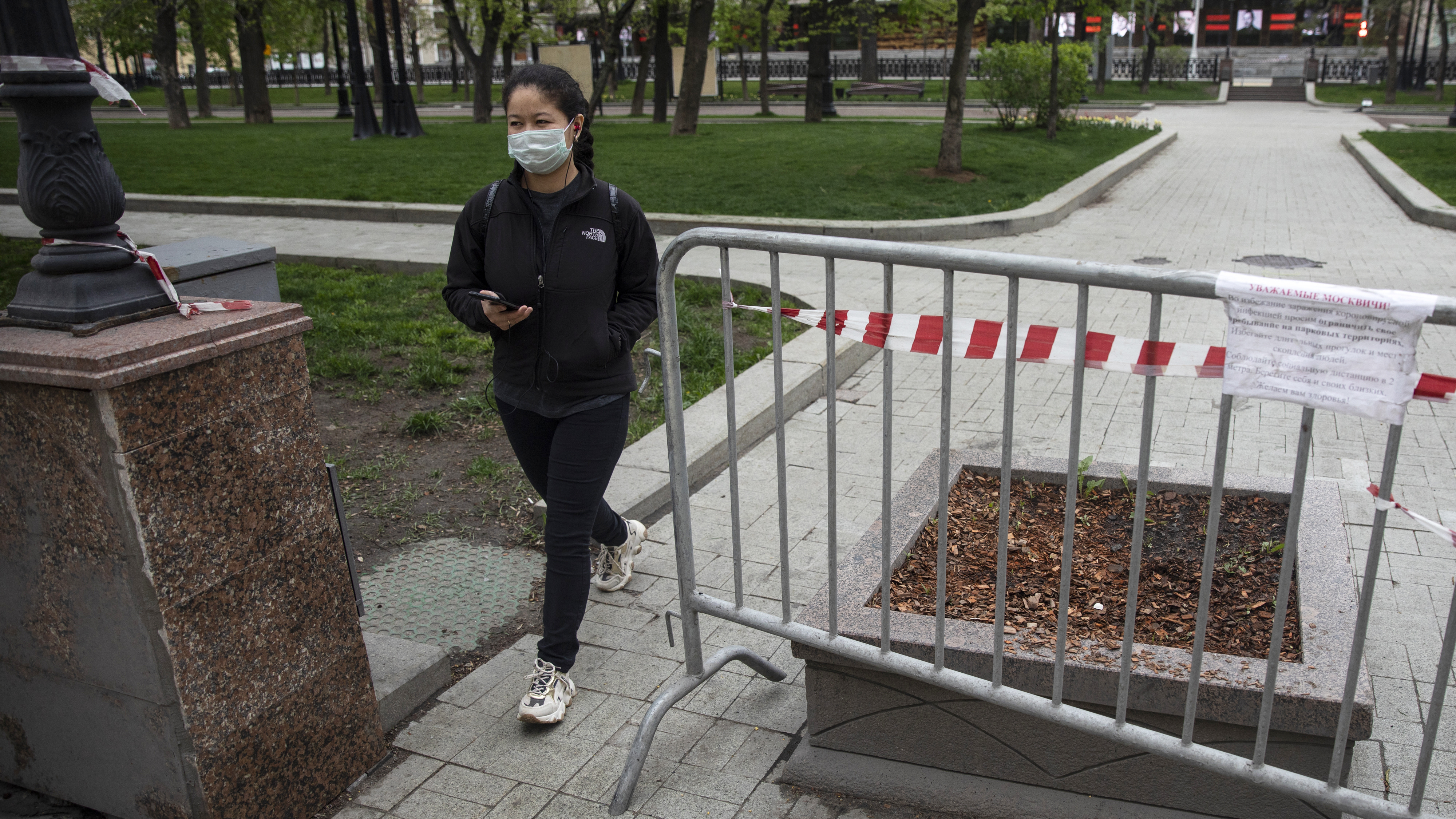The United States on Friday accused China and Russia of stepping up cooperation to spread false narratives over the coronavirus pandemic, saying Beijing was increasingly adopting techniques honed by Moscow.
"Even before the COVID-19 crisis, we assessed a certain level of coordination between Russia and the PRC in the realm of propaganda," said Lea Gabrielle, coordinator of the State Department's Global Engagement Center.
The agency also claimed that it "has uncovered a new network of inauthentic Twitter accounts, which we assess were created with the intent to amplify Chinese propaganda and disinformation."
But Twitter pushed back on the assertion on Friday, saying that an initial review casts doubt on the claim.
After reviewing more than 5,000 accounts, Twitter said it has instead found that numerous accounts belong to government entities, nongovernmental organizations, and journalists.
The review is ongoing, the company said, noting that it planned to follow up with the GEC on its findings.
The GEC also claimed that China and Russia are accelerating cooperation with the pandemic.
"We see this convergence as a result of what we consider to be pragmatism between the two actors who want to shape public understanding of the COVID pandemic for their own purposes," Gabrielle said.
She said they found that thousands of Russian-linked social media accounts were spreading conspiracies about the pandemic, including that the virus first detected last year in Wuhan was created by the United States.

A woman passes a fence of the closed Tverskoy boulevard in Moscow, Russia, May 8, 2020. /AP
A woman passes a fence of the closed Tverskoy boulevard in Moscow, Russia, May 8, 2020. /AP
The latest accusation on China and Russia came as the Trump administration push the unproven theory that the virus originated in a Wuhan laboratory.
U.S. Secretary of State Mike Pompeo has repeatedly said the coronavirus originated in a laboratory in Wuhan, but he has also conceded that the U.S. could not be certain.
China rejected such conspiracy theory and asked the U.S. government to stop spreading conspiracy theories and return to cooperation to contain the disease.
Both the World Health Organization and the U.S. top epidemiologists say there is no evidence the virus came from a lab.
Chinese Ambassador to the U.S. Cui Tiankai recently wrote in the Washington Post that the conspiracy was to brand "objective facts as disinformation and propaganda."
"Behind the mind-set of 'always blame China' is a kind of dirty politics, championed by a few people who shift the spotlight for political gain," Cui said.
Russian President Vladimir Putin spoke to Chinese President Xi Jinping in a phone call on Friday and he said Russia "opposes the attempts by some forces to use the epidemic as a pretext to blame China and will stand firmly by China's side."
Putin also extended his appreciation for medical assistance offered by China. He said Russia is willing to learn from China's experiences in epidemic control, and jointly carrying out the development of potential vaccines.
Earlier, the Kremlin said the U.S. is wrong to accuse China of being responsible for the coronavirus outbreak without providing those claims.
"We consider it not a proper time, being somewhere in the middle of a severe crisis, an unprecedented crisis, to try to blame everything on the international health organization (the World Health Organization) or, the next day, on China," Dmitry Peskov told CNBC on Tuesday.
He said such accusation from the U.S. government is "very, very serious" and if that accusation is to be made it needs proof.
"Without proof, we consider it wrong to attack third countries in this, let's say, humbly speaking, non-diplomatic way."
He also said Russia and China's relationship is based on mutual understanding and mutual cooperation, and that Moscow is taking advantage of that mutual cooperation in this severe crisis and the two countries are exchanging information and protocols of treatment.
(With input from AFP)